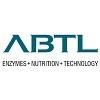Role of Betaine as a Methyl Group Donor

As nutritionists we must remember the methionine cycle and transulfuration pathway to cysteine should be considered as just that, a cycle, dependent on or including choline, betaine and certain of the b vitamins. Failure to include any one component could result in the cycle not being optimized resulting in homocysteine buildup, limiting TSAA supply and an under-estimation of the TSAA requirement.
Choline's role in methylation is mediated through betaine. Therefore, direct supplementation of betaine provides the most effective means to get the benefits attributed to choline in methylation. The proximate methyl donor in vivo is SAM. SAM is converted to homocysteine after its methyl group is donated in a variety of metabolic pathways, including the synthesis of carnitine from lysine. By efficiently recycling the homocysteine back to methionine using betaine, the entire methylation system would work at its optimum, including efficient metabolism of fat via the beta-oxidation pathway in the mitochondria that is mediated by carnitine. This would minimize the occurrence of fatty liver syndrome as well as reduce the overall serum homocysteine levels, a stress indicator. While at the same time, the unique molecular structure of betaine delivers energy-free cellular osmotic protection. Betaine is indeed a wonderful molecule and its use should be even more widely adopted.
Even with the ideal levels of essential amino acids in a diet, as crude protein is lowered, the levels of other "non-essential" amino acids, e.g. glycine, may drop below the optimal levels for animal performance. However, direct supplementation with glycine has been shown to affect gut microbiome, immune response gene expression, and serum concentrations of various amino acids (https://www.ncbi.nlm.nih.gov/pmc/articles/PMC7426780/). Betaine could benefit low protein diets by supplying animals with a form of glycine that is released slowly after the betaine molecule has already contributed its methyl group so that the negative effects of glycine can be avoided. This is an area worthy of additional research.
Hi Dear Ana:
As all know one of the layer problem that may be encountered in heat stress and tropical condition is fatty liver hemorrhagic syndrome and because of choline effect on lipid as lipotropic agent, increasing the amount of it in feed whit other lipotropic and hepatoprotector
is recommend. the question is that has betaine this effect as lipotropic substance and can it be used in this condition? And agree betaine is one of the best in heat stress to have good gut health and intestinal integrity.
Best regards.
Dear all,
As stated by Dr. Waldroup his team had published several papers around 2005 and 2006 related with methionine savings and the possible sparing effects of methyl donors like choline and or betaine.
All the above comments are right; but, maybe there is little space emphasizing that betaine due to its zwitterionic structure has very strong osmoprotective properties.
As an example protecting intestinal cells under heat stress conditions; betaine therefore could increase digestibilty and absortion of nutrients thereby it would improve zootechnical performance.
Very interesting topic.
Alfredo Irazusta.
Consultant.
Alinat SRL
Argentina

We have extensively researched the relationship between betaine methionine and choline and at normal usage levels cannot recommended any sparing effect of betaine. However, it does aid in maintaining intestinal integrity and some studies have shown increased breast meat yield.
Hi Ana
How much amino acid can be replaced with natural betaine?
Are you talking about anhydrous form?
Could you please share your mail address & contact nº to discuss more.
Regards,
Azimul.































